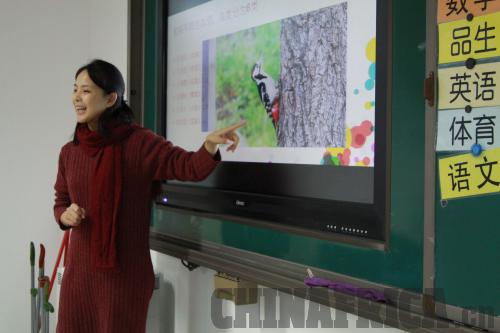|

Liu Huili (COURTESY PHOTO)
Flying High
Although she looks petite, Liu Huili likes nothing better than being outdoors in remote parts of China, protecting wild bird population.
The 30-year-old is chief executive officer (CEO) of China Network for Birds Conservation, as well as director of Wild Birds and Animal Office of Nature University. Both of the two environmental protection non-governmental organizations (NGOs) are based in Beijing.
"Most wild birds are protected animals in China, and it is illegal to hunt them. But many are caught to be sold at bird markets or are [placed in cages] in restaurants," Liu told ChinAfrica.
Launched in 2012, the China Network for Birds Conservation is the country's first bird protection network for anti-poaching activities and natural habitat protection, through ways such as investigation, patrolling, rescue, monitoring and nature education. The network has supported more than 20 local bird protection teams around the country.
Liu said her work makes her very proud and she is happy to be among the people working to protect birds.
After Liu graduated from the Beijing-based Communication University of China in 2008, she came to her hometown in Shanghai and spent one and a half years working as a reporter with O2 Life magazine, which is dedicated to promoting a simple, creative and environmental-friendly lifestyle. Her work during that period aroused her interest in environmental issues.

In December 2014, Liu Huili teaches primary school students about bird protection in Beijing
In her daily work, she had the opportunity to interview many environmental activists. "What they were doing touched and attracted me, and I wanted to go into the field like them to do something [active], instead of only writing articles," Liu said.
She came to realize that environmental problems need constant effort for resolution because they involve many factors whereas her work, exposing them in the media, could produce only limited results.
In 2009, she resigned from the magazine, came to Beijing and worked for Nature University, a non-profit NGO spreading the environmental protection knowledge among the public.
Since that year, Liu has worked on many environmental projects at Nature University, and now focuses on the area of wild birds and animal protection. After China Network for Birds Conservation was founded in 2012, she became its CEO.
One of her biggest operations took place in 2012. On November 10 that year, 500 oriental white storks arrived at the Beidagang Reservoir in Tianjin. The next morning, a bird photographer found about 40 storks had been poisoned by poachers.
Liu and volunteers from a bird protection team in Tianjin were busy dismantling bird nets nearby when they heard the news. They rushed to the scene and began rescue work, calling in local police and government agencies to assist, while also posting the rescue progress on the microblog site Weibo.
Over a five-hour period, 13 poisoned storks had been revived with the help of additional volunteers who had followed the rescue process online.
"This work made us realize our network needs more volunteers, and protecting birds needs more support and assistance from around the country," said Liu.
Apart from anti-poaching work, her network also seeks to protect the natural habitat as the destruction and loss of habitat is the most serious threat facing many bird species.
While more men work on the frontline of wild bird and animal protection, Liu feels women have other advantages. They are more considerate and thoughtful, and have a softer approach when it comes to communication, she said. However, "no matter if you are a man or a woman, the working method is what's important: face the problem and act quickly," she added.
Liu faces a lot of challenges in her rescue and protection work, such as how to raise money in a sustainable manner.
She stresses that some of the wildlife protection laws are neglected in many areas, especially in the countryside, and many people killing or trapping wildlife don't know they are violating the law. This means educating the public is crucial.
According to Liu, although there are many bird-watching societies in China, they focus on watching birds and have little experience in reporting poaching activities and habitat destruction.
In January, Liu and her team compiled A Guidebook for Bird Protection, a booklet with tips on bird rescue and protection, how to report poaching cases, relevant wildlife protection laws, and hotline numbers for public reporting and supervision.
"We hope this guidebook will make more bird watchers and the public join our bird protection teams," she said. "Protecting wild birds not only needs [the support of] government agencies, but also the public's participation, to oversee whether government agencies are playing their role well."
|